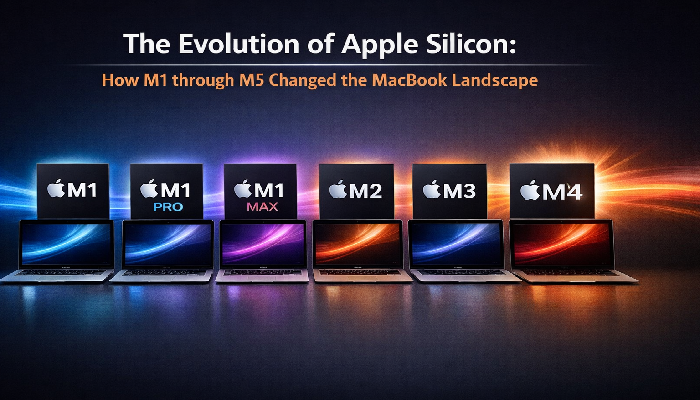In the ever-evolving landscape of the 21st century, the field of Information Technology (IT) stands out as a beacon of progress and innovation. This dynamic domain is more than just a sector; it’s a pivotal part of our daily lives, shaping how we communicate, work, and even think. In today’s digitally driven world, IT is the backbone that supports and propels a myriad of industries, making it an exciting and essential field to consider for a career.
The allure of a career in IT lies not just in its omnipresence but also in its diversity. Whether you’re intrigued by the intricacies of code, fascinated by the complexities of networks, or driven by the desire to safeguard digital assets, IT offers a multitude of pathways, each with its unique challenges and rewards. Moreover, the constant evolution of technology ensures that a career in IT is never stagnant, always presenting new opportunities to learn and grow.
This article serves as a guide for those embarking on or shifting to this vibrant career path, providing insights and tips to navigate the multifaceted world of IT, a field that promises a thrilling and rewarding professional journey.
Cybersecurity: Safeguarding the Digital Frontier
Cybersecurity, a vital aspect of IT, focuses on defending digital assets against cyber threats. With the digital world’s expansion, the role of cybersecurity professionals has become increasingly critical. They work as digital guardians, ensuring the security of sensitive information. The field, offering roles like ethical hackers and security analysts, demands skilled individuals. Advancing education through a masters in cybersecurity online provides deeper knowledge and career elevation. These programs offer advanced skills in network security and the flexibility for those juggling work and study, paving the way for higher positions in cybersecurity.
Software Development: Coding the Future
Software development, central to IT, encompasses creating applications and systems. It’s a field with diverse roles, such as front-end, back-end, and full-stack development, united by the core skill of coding. Beginners should start by learning languages like Python or JavaScript and engage in consistent practice and project work. Participation in coding bootcamps and online courses, along with networking with other developers, is crucial for skill enhancement.
Network Engineering: Connecting the Digital World
Network engineering is crucial in IT, focusing on designing and managing networks that facilitate digital data flow. Network engineers work to make these infrastructures efficient, secure, and scalable. Starting a career in this field often involves obtaining certifications like CompTIA Network+ or Cisco’s CCNA, which provide foundational networking knowledge. Gaining practical experience, especially in real-world scenarios, is essential. As the field continually evolves, network engineers must stay updated with the latest technologies and trends, ensuring the networks they manage are robust and meet modern communication demands.
Data Science: Unveiling Insights from Data
Data science, a growing IT field, involves extracting insights from large data sets. Data scientists use a blend of statistics, machine learning, and data visualization to inform organizational decision-making. Aspiring data scientists need a strong background in mathematics and programming, with Python and R being essential languages. Familiarity with data visualization tools and machine learning enhances their capability. Professionals often pursue specialized courses or degrees to boost their skills. Practical experience, such as working on data projects, is crucial for developing the expertise necessary to excel in this challenging and rewarding field.
Cloud Computing: Navigating the Cloudy Skies
Cloud computing, a revolutionary aspect of IT, involves delivering a multitude of services over the internet, which include data storage, databases, networking, databases, servers, and software. With the shift to the cloud, IT professionals in this field are more in demand than ever. Cloud computing roles range from cloud architects and developers to system administrators, each requiring a unique set of skills.
To embark on a career in cloud computing, one should start by understanding the basics of cloud services and how they differ from traditional computing. Gaining proficiency in leading cloud platforms like AWS, Azure, or Google Cloud is essential, often through certifications offered by these platforms. Practical experience can be gained through building projects in the cloud, contributing to open-source cloud initiatives, or working in cloud-focused roles.
IT Support: The Unsung Heroes of Tech
IT support professionals are crucial in any organization, addressing technical issues and ensuring smooth operation of IT systems. This role is not just about technical know-how; it also requires excellent problem-solving and communication skills to assist non-technical users. Careers in IT support can range from help desk technicians to IT support specialists, providing ample opportunities for growth and specialization.
Starting a career in IT support typically involves learning basic hardware and software troubleshooting skills. Certifications like CompTIA A+ can provide a solid foundation. Gaining hands-on experience through internships or entry-level positions is invaluable, as it allows professionals to hone their skills in real-world environments. IT support roles also offer a unique perspective on the IT needs of an organization, making them a great stepping stone for further career advancement in more specialized IT domains.
UI/UX Design: Crafting User Experiences
UI/UX design is an integral part of IT, focusing on designing intuitive and engaging user interfaces and experiences. This field blends technical skills with creativity, requiring a deep understanding of user behavior and design principles. UI/UX designers play a key role in creating digital products that are not only functional but also enjoyable to use.
Those interested in UI/UX design should start by learning the basics of design and user experience principles. Familiarity with design tools like Adobe XD, Sketch, or Figma is essential. Building a portfolio through personal or freelance projects can showcase your design skills to potential employers. UI/UX design offers a rewarding career path for those who are passionate about marrying technology with creative design to enhance user interaction.
Emerging Technologies: Staying Ahead in IT
The IT field is constantly influenced by emerging technologies like artificial intelligence, machine learning, the Internet of Things (IoT), and blockchain. Staying abreast of these technologies is crucial for IT professionals who wish to remain relevant and competitive.
Aspiring IT professionals should engage in continuous learning through online courses, workshops, and certifications focused on emerging technologies. By embracing lifelong learning and staying curious about new developments, IT professionals can position themselves at the forefront of technological advancement, opening doors to exciting and cutting-edge career opportunities.
Embarking on a career in Information Technology is an exciting journey filled with endless possibilities. From the fundamentals of cybersecurity to the creative realms of UI/UX design, the IT field offers a diverse range of pathways for those eager to explore and innovate. Whether your interest lies in the intricacies of data, the expansiveness of cloud computing, the problem-solving aspects of IT support, or the cutting-edge of emerging technologies, there is a niche for every aspiring IT professional.
The key to a successful career in IT is continuous learning, adaptability, and a passion for technology. As you embark on your IT career, embrace each challenge as an opportunity to grow and make your mark in the ever-evolving digital landscape.







